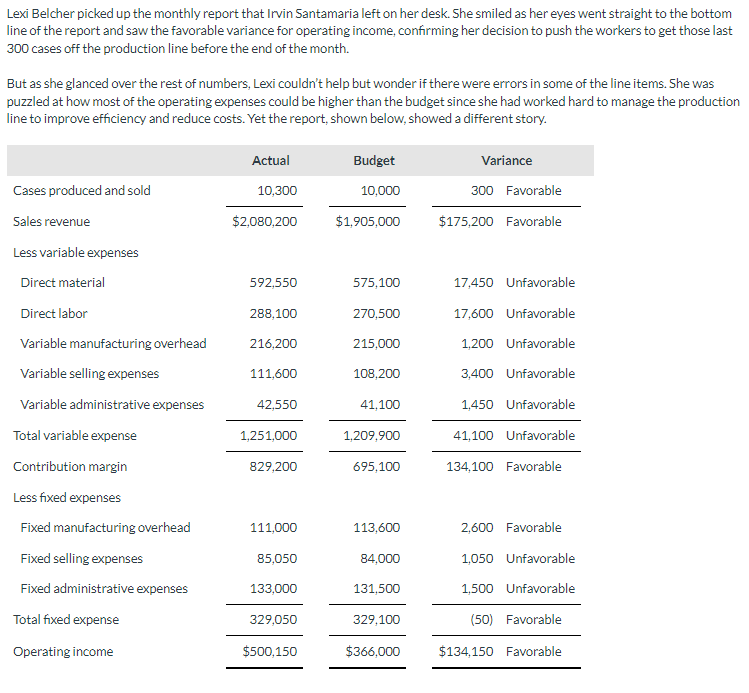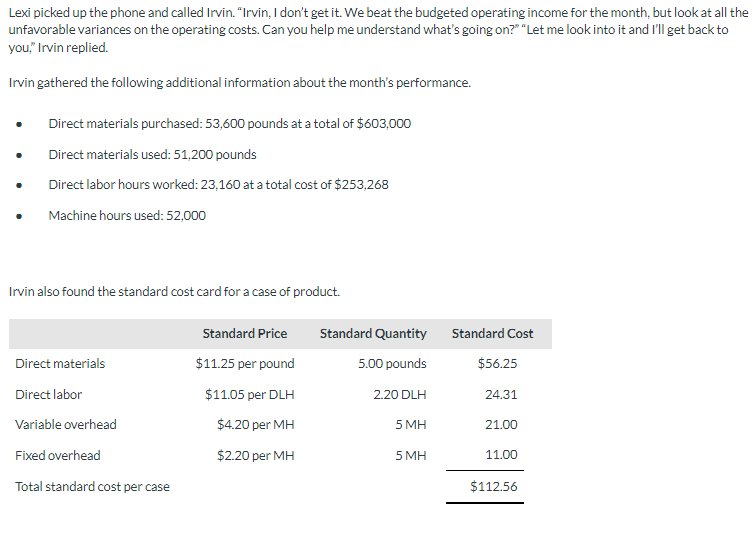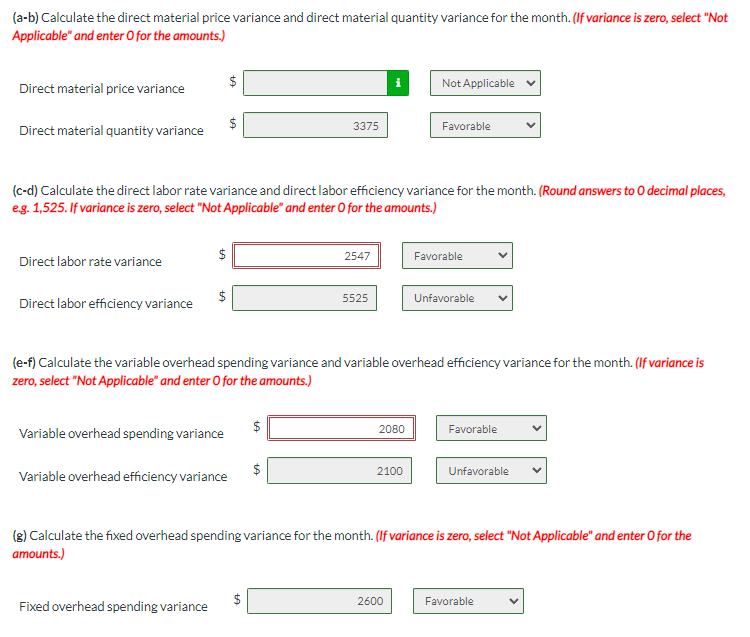


Lexi Belcher picked up the monthly report that Irvin Santamaria left on her desk. She smiled as her eyes went straight to the bottom line of the report and saw the favorable variance for operating income, confirming her decision to push the workers to get those last 300 cases off the production line before the end of the month. But as she glanced over the rest of numbers, Lexi couldn't help but wonder if there were errors in some of the line items. She was puzzled at how most of the operating expenses could be higher than the budget since she had worked hard to manage the production line to improve efficiency and reduce costs. Yet the report, shown below, showed a different story. Lexi picked up the phone and called Irvin. "Irvin, I don't get it. We beat the budgeted operating income for the month, but look at all the unfavorable variances on the operating costs. Can you help me understand what's going on?" "Let me look into it and I'll get back to you,", Irvin replied. Irvin gathered the following additional information about the month's performance. - Direct materials purchased: 53,600 pounds at a total of $603,000 - Direct materials used: 51,200 pounds - Direct labor hours worked: 23,160 at a total cost of $253,268 - Machine hours used: 52,000 Irvin also found the standard cost card for a case of product. (a-b) Calculate the direct material price variance and direct material quantity variance for the month. (If variance is zero, select "Not Applicable" and enter 0 for the amounts.) Direct material price variance $ Direct material quantity variance $ (c-d) Calculate the direct labor rate variance and direct labor efficiency variance for the month. (Round answers to 0 decimal places, e.g. 1,525. If variance is zero, select "Not Applicable" and enter 0 for the amounts.) Direct labor rate variance $ Direct labor efficiency variance $ (e-f) Calculate the variable overhead spending variance and variable overhead efficiency variance for the month. (If variance is zero, select "Not Applicable" and enter 0 for the amounts.) Variable overhead spending variance $ Variable overhead efficiency variance $ (g) Calculate the fixed overhead spending variance for the month. (If variance is zero, select "Not Applicable" and enter O for the amounts.) Fixed overhead spending variance









